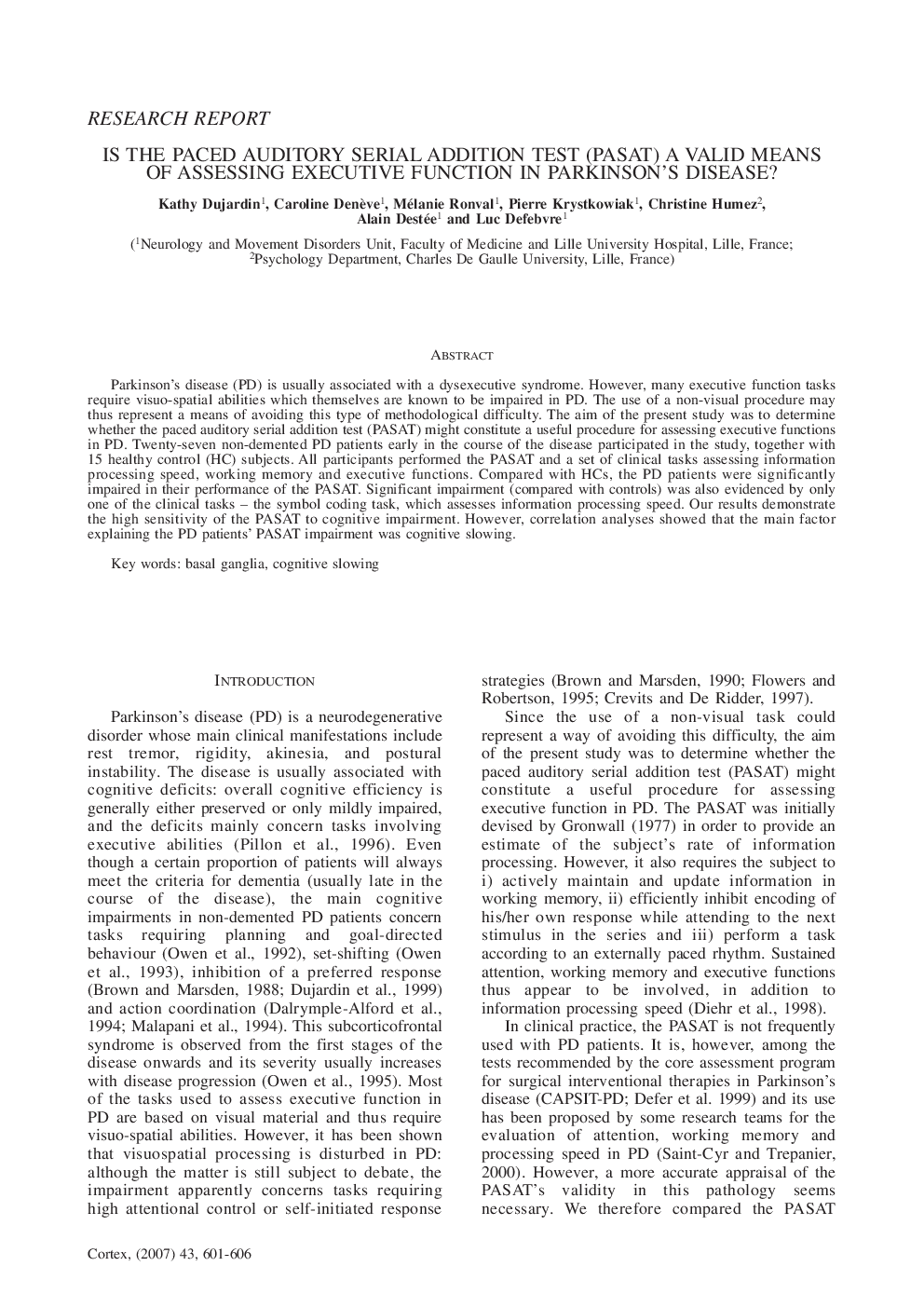| Article ID | Journal | Published Year | Pages | File Type |
|---|---|---|---|---|
| 942780 | Cortex | 2007 | 6 Pages |
Parkinson's disease (PD) is usually associated with a dysexecutive syndrome. However, many executive function tasks require visuo-spatial abilities which themselves are known to be impaired in PD. The use of a non-visual procedure may thus represent a means of avoiding this type of methodological difficulty. The aim of the present study was to determine whether the paced auditory serial addition test (PASAT) might constitute a useful procedure for assessing executive functions in PD. Twenty-seven non-demented PD patients early in the course of the disease participated in the study, together with 15 healthy control (HC) subjects. All participants performed the PASAT and a set of clinical tasks assessing information processing speed, working memory and executive functions. Compared with HCs, the PD patients were significantly impaired in their performance of the PASAT. Significant impairment (compared with controls) was also evidenced by only one of the clinical tasks - the symbol coding task, which assesses information processing speed. Our results demonstrate the high sensitivity of the PASAT to cognitive impairment. However, correlation analyses showed that the main factor explaining the PD patients' PASAT impairment was cognitive slowing.
